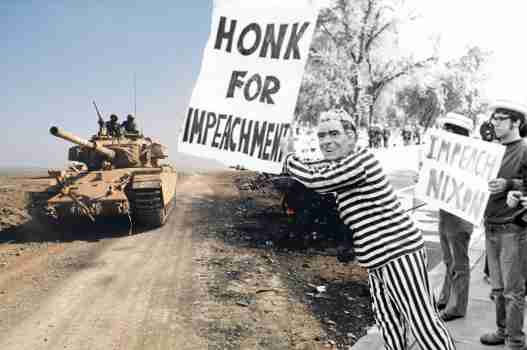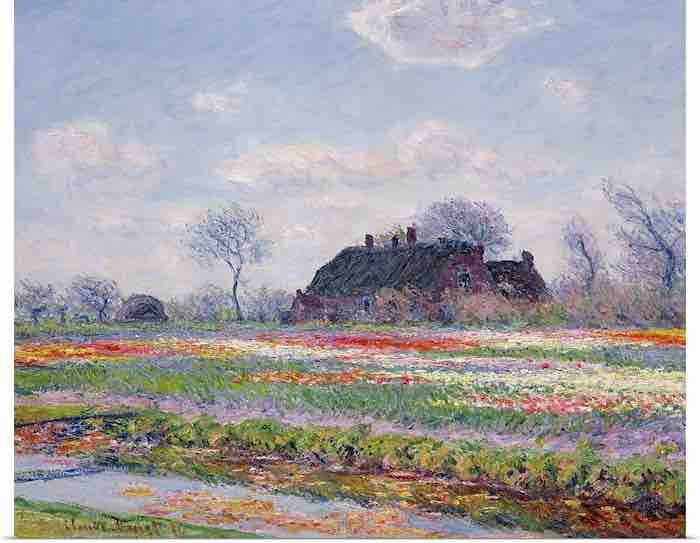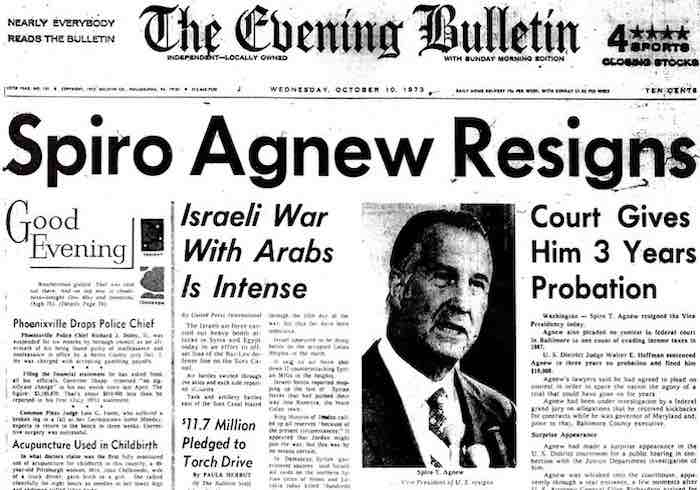By Dr. Bruce Smith ——Bio and Archives--May 8, 2023
HeartlandLifestyles | CFP Comments | Reader Friendly | Subscribe | Email Us

Those were heady days in October, 1973. I was a junior at Indiana University, back in the dorm, and I had just begun to implement my new strategy for academic success. There was a full load of tough classes, heavily tilted toward upper level history. There was Modern Germany, Eastern Europe, genetics, education. I was in a history honors seminar with my new academic mentor, and every meeting was like opening King Tut’s tomb. What days they were, always to be savored and remembered with a glowing heart.
The previous summer of ’73 I had watched the Senate Judiciary Committee hearings with the senile old Democrat Sam Ervin, manipulated like a marionette to do the bidding of those determined to bring down Nixon for any reason that could be found. The ranking Republican member was Howard Baker. Another Republican member was Lowell Weicker of Connecticut. What a joke that was. Inouye, Montoya, and Talmadge were also on the committee as Democrats. The committee did a lot of tut-tutting and harrumphing, but when it ended they had nothing to link the president to the Watergate break-in. They kept sniffing and pointing fingers.
The Yom Kippur war between the Israelis and the Egyptians began on October 6 that year. I was following it closely.
Mine was a ‘70s dorm room, so there were posters. Most of my floor colleagues had posters from Woodstock or films they liked. I remember seeing psychedelic posters that glowed in the dark when the UV lights were plugged in.

I had different posters. There was a portrait of Erasmus done by Hans Holbein about 1523, and a poster for the opera Tosca, with the Castel Sant’Angelo as the backdrop. There were two Monet prints, one titled Champs de Tulipes en Hollande, and another, my favorite, titled Tulip Fields at Sassenheim, near Leiden, both from 1886. The posters spoke to me. Erasmus was the learned man of letters I aspired to be. Puccini portrayed Tosca’s jealousy and rage in moving drama with emotional arias like the Recondita armonia. It appealed to my Romantic interests and also to a sense of tragedy and love lost in my own life. The Monet prints had been on my walls for two years, and they served two purposes. The first reminded me of the brilliant colors of the impressionist palette, but the second was an escape. My window on the fifth floor faced west. When the light began to fade in my room during the golden hour, the print became moody, the purplish house in the distance a destination. I could gaze at it and find myself walking toward it on a road, or walking about the windy grounds in the fading light on an April day in 1886. It was calming and magical. When I went to Europe the year before, I had found the original in Paris in the Jeu de Paume, where most of the Impressionist paintings were kept until 1986. Also on my wall was a print of David’s dramatic Napoleon Crossing the Alps, an allegory of the academic career I was set to launch.

There was one other poster, a color photo, uncaptioned, of Spiro Agnew in formal attire with a microphone. He was the outspoken champion of the rare conservative students like me on campus. Agnew had been Nixon’s vice-president since 1969 when the first Nixon term began. Born to a Greek father and American mother, he had attended Johns Hopkins and then the University of Baltimore Law School. He was a combat officer in Europe in World War II, winning the Combat Infantry Badge and the Bronze Star. He served as Baltimore County Executive for four years, then was elected Governor of Maryland in 1966. When Nixon of California made his comeback in 1968, Agnew was a solid, if little known, candidate to balance the ticket with a Republican East Coast governor. Agnew got the job.
Agnew was the attack dog who traveled around the country speaking and raising money for the party. He was not shy. He had a great speaking voice and he often said what many people were thinking. One particular quote stuck in my mind because it was about student demonstrators, and I knew it was true because I had seen it myself.
“The student now goes to school to proclaim rather than to learn. A spirit of national masochism prevails, encouraged by an effete corps of impudent snobs who characterize themselves as intellectuals.”
Support Canada Free Press

I thought of this quote every time I saw the poster. I had to be the true scholar, not an impudent, snobby pseudo-intellectual. I worked to be the seeker of truth, the discoverer of eternal knowledge. I wanted to be like my mentors, with stellar careers and classrooms full of bright students, eager to learn. That Fall of ’73 I was on the upward path.
Never a fanatical baseball fan, I had played center field and first base as a kid, so the World Series was always an opportunity to see what the season had produced. I always wanted my Cincinnati Reds to be there, but this year it was the Oakland As and the New York Mets. The Reds were from the National League, so I was pulling for the Mets. On the evening of October 16, a very few of us were watching Game 3 of the Series, played at Shea Stadium. There was a TV in the lounge on the dorm floor, about two steps from my door. I don’t recall how many innings I had watched when a bulletin came on the air with breaking news. Vice President Agnew had just resigned. There was an allegation of bribery when Agnew had been a county executive in Maryland. I was stunned. I expected so much more from anyone in a national leadership position. An investigation in Maryland had been going on for a while. When the allegation emerged, he resigned immediately to face the consequences. It was in this way we learned the meaning of the legal term nolo contendere, basically, “no contest.” Agnew did not contest the charge placed against him. It wasn’t a guilty plea, just an admission that he would not fight the charge. In an instant, he was gone from public life.
It was only right that he had to go. We can’t have public officials who might be susceptible to bribery or other undue political pressures. Office holders must always be above suspicion because they hold a public trust. When it becomes plain through evidence that someone is compromised, they have to step down. This rule applies to all political parties. I liked Agnew, but without a doubt he had to go, and he went.
In those days there was a press that, although it tilted left, would at least occasionally seek wrongdoing wherever it was to be found. It was the last days of fairness, however. The three TV networks CBS, NBC, and ABC provided daily summaries of the slower-moving print media. More and more, their biases became increasingly obvious. It had already been four years since Walter Cronkite had come back from Vietnam after the Tet Offensive to declare that the US had lost the war, and more importantly, could not do anything to win it. With the senate hearings in 1973, the political establishment and the press had clearly gone over to a blatant hatred of Nixon and all things Republican. Ten months later, Nixon resigned, not because of evidence proving that he had committed a high crime, but because he came to believe that an impeachment taken to the senate would result in his conviction and removal from office with or without compelling evidence.

Now we skip forward fifty years to the present day. This past week there was yet another revelation from a credible witness that a high public official had allegedly been involved in a bribery scheme at a time when he held a lower office. This came on top of an investigation going for more than four years, and top heavy with evidence, that corruption on an epic scale had allegedly been going on with this same public official. One part of the evidence is a laptop computer with plans, payment schemes, and plenty of names. Some important people wrote a letter declaring that the laptop was the work of a Russian disinformation effort. That got them through the election. Then it turned out that it was actually the real deal, and law enforcement had been sitting on it for more than four years. It was the perfect cover. ‘Can’t comment on an ongoing investigation!’ I was stunned again.
Fifty years ago this year revelations prompted an otherwise honorable public official to resign because it was the right thing to do. But things are different now. Now, with similar revelations clearly known to investigators and to the public, it is unlikely anyone will step down because there is no honor and because no one will make lawbreakers step down so long as the accused are on the favored side of the political spectrum.
So these events remind me of October ’73, but only a little. Back then, the system was a little fairer and public officials sometimes still had a sense of honor. Now, not so much.
View Comments
Dr. Bruce Smith (Inkwell, Hearth and Plow) is a retired professor of history and a lifelong observer of politics and world events. He holds degrees from Indiana University and the University of Notre Dame. In addition to writing, he works as a caretaker and handyman. His non-fiction book The War Comes to Plum Street, about daily life in the 1930s and during World War II, may be ordered from Indiana University Press.